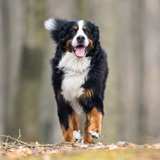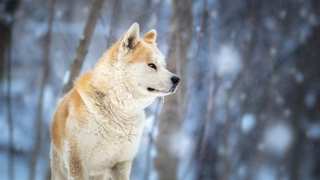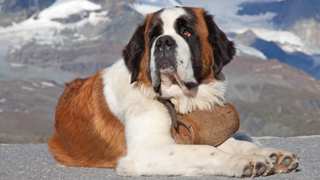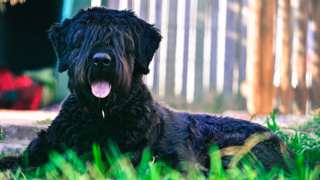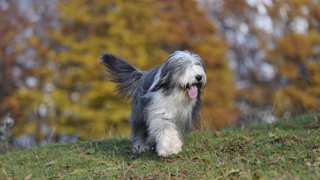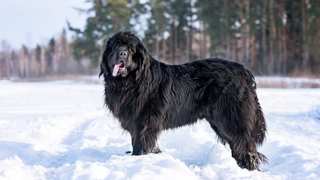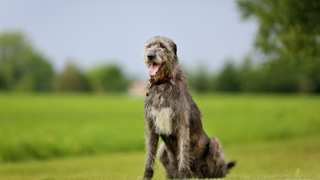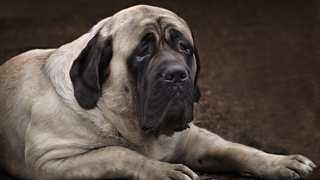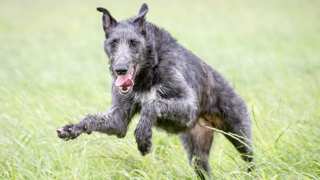Bernese Mountain Dog exercise needs are significant in some ways but not in others, and interchangeably so. This may sound confusing, but what it means is that at the least, you should exercise him either hard for a short while or for long periods of moderate exertion. These dogs can reserve energy when not active, but when it comes time to get going they can go for the long, hard haul if need be. Regardless, his daily exercise should not be neglected, and if he is allowed to be lazy, he will be.
Berners should not be allowed off the leash except when otherwise restrained. Dog parks are fine, of course. Despite his size and his preference for harnesses when pulling sleds, sleighs, and kids in the snow, a collar leash is the best when walking or otherwise outdoors with your Berner as this helps to maintain control without wrestling him down. While these dogs have double-coats that insulate them in extreme weather, they are fine in very cold climes but are not tolerant to hot weather. If the temperature is high, exercise him in the mornings and evenings to avoid problems. As this breed's development is very slow, however, they should not be exercised hard while they are still physically growing. This means that before he is 10 months to just over a year old, basic walks should be the most you do. Puppies should not be allowed to jump and down on furniture or be walked on hard surfaces as this can permanently injure their joints. Sled-pulling shouldn't be allowed until at least 2 years of age.
The best exercise for these dogs include a great range of activities, and they depend on the terrain, weather, and your time. One thing you should not waste your time doing is fetch, as this breed is simply not interested. Here are some things you can do to keep your Bernese Mountain Dog fit:
- Walking: This helps with training, socialization and more, and should be done for an hour or so at least twice a day.
- Hiking: These are mountain dogs, after all, and yet you should be careful to avoid desert environments and places where venomous snakes live.
- Swimming: These dogs are not big on water, but they shouldn't shy away from shallow ponds and the like.
- Running: If you can keep up as well as in control, this can be a lot of fun.
- Pulling: The snow, a sled, and your kids or some weight you can pile on that sled will be something your Berner will love!
- Skiing: This is no easy task even without a dog, and there are a lot of things to learn to make it safe, but there are a lot of people who do this with their Swiss mountain dogs.
There are not many things you can do to cut down on how much exercise your Berner needs. If your yard is not very secure, you shouldn't let him run around for two reasons: he will escape, and he won't exercise on his own. These dogs are not given to playing with toys, and they demand a lot of attention. Although they tend to have not only shorter lives (like all giant breeds), they also have very short periods where they are in the prime of their lives. Be sure to know before you adopt that Bernese puppy that you will have to be there with them most all the time, and happily so. If you are unable to find the time to exercise him, you must find someone who will.
